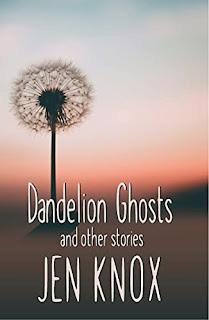This particular course is an introduction to creative writing and it will encompass numerous genres, including drama, fiction, poetry and creative nonfiction. Truthfully, this feels like play for me--it's so much fun to sift through endless literary shorts, to decide which works I want to include in my course reading. I have a large compilation of works that I'll have to pare down a bit before fall, but I'm confident that the end result will be an eclectic collection that will appeal to a wide array of tastes and sensibilities. But this is the easy part.
I have been putting off constructing the craft lessons and writing assignments because I figured this would be the cumbersome work. Perhaps this is due to a slight bent toward the idea that to teach writing is a limited venture, after all, so much depends on voice and the writer's motivation, ability to create. Creativity
That said, I began today--I began putting together assignments that go back to basics: character development, types of conflict, ways to raise tension, how to avoid cliches, etc... And guess what? I realized I hadn't really broken writing down to the basics in quite some time. Not that I forgot the basics, but I just didn't think about them much. I figured they were all just coming out, naturally.
As I sketch potential exercises for my students, I've found myself taking time to pause and reflect on my own works-in-progress with a newfound (re-found) focus. So, for me, the education is not necessarily a formula to create a bestselling author or literary phenom, but it does contribute to the perspective I need to have to round out my own work.
Regardless of any creative gifts a writer has, the formula for a strong work will always be there. X(believable narrative) + Y(defined conflict or topic) + Z (specific descriptions) = A complete work. Experimental structures and the all-elusive 'voice' can take this simple formula and make it look more like calculus than simple algebra, but the basics will endure; and they can be taught.
Kurt Vonnegut's



Best wishes to you in this venture, Jen. Having you as a coach online was a gift. You're good at balancing the good news with the bad news, making aspiring writers feel like they have enough talent and confidence to continue. Believe me, not all writing teachers have this gift . . .
ReplyDeleteThank you! I love those one-on-one workshops. I only hope that I can be as productive with an entire class.
ReplyDelete(I've had quite a few discouraging teachers in my past as well. I hope to emulate the few who inspired me to keep going, despite all the odds.)